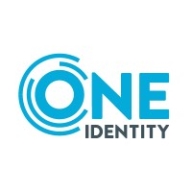

OneLogin by One Identity and Google Cloud Identity are key competitors in the identity and access management sector, catering to diverse enterprise needs. OneLogin appears to have the upper hand in features like robust security and integration capabilities, which enhance its appeal for productivity and security-focused organizations.
Features: OneLogin offers seamless integration with multiple SAAS providers via Desktop SSO, facilitates access management through Active Directory credentials, and supports multifactor authentication. Its SmartFactor Authentication ensures enhanced security in remote work settings. Google Cloud Identity is praised for its intuitive setup, Google Workspace integration, and basic multifactor authentication, making it user-friendly and stable for basic needs.
Room for Improvement: OneLogin users call for expanded connector availability, better post-acquisition support, and improved offboarding processes. Enhancements in reporting with SmartFactor Authentication and more intuitive customization options are also suggested. Google Cloud Identity could benefit from better monitoring alerts and security policy configuration, as well as improved integration with non-Google environments and LDAP management for greater flexibility.
Ease of Deployment and Customer Service: Both OneLogin and Google Cloud Identity are primarily deployed via public cloud, facilitating robust access. Customer support is generally rated highly, though OneLogin has faced post-acquisition support inconsistencies. Google Cloud Identity stands out for responsive support, but improvements in customizing alerts and support options are noted.
Pricing and ROI: OneLogin is regarded as competitively priced with significant ROI from process streamlining, despite past fee increases. Google Cloud Identity provides affordable options, including a free tier for basic services, while enterprise pricing remains competitive. Both products promise high ROI through IT management efficiencies and productivity enhancement, though pricing strategies affect user satisfaction and choice.
| Product | Market Share (%) |
|---|---|
| Google Cloud Identity | 15.3% |
| OneLogin by One Identity | 1.8% |
| Other | 82.9% |


| Company Size | Count |
|---|---|
| Small Business | 11 |
| Midsize Enterprise | 4 |
| Large Enterprise | 8 |
| Company Size | Count |
|---|---|
| Small Business | 7 |
| Midsize Enterprise | 4 |
| Large Enterprise | 8 |
Cloud Identity is an Identity as a Service (IDaaS) and enterprise mobility management (EMM) product. It offers the identity services and endpoint administration that are available in G Suite as a stand-alone product. As an administrator, you can use Cloud Identity to manage your users, apps, and devices from a central location - the Google Admin console.
OneLogin by One Identity is a cloud-based access management solution for the modern enterprise. It delivers secure access for every user, every app and every device to meet an organization’s Workforce and Customer and Identity and Access Management (CIAM) needs.
OneLogin provides secure single sign-on, multi-factor authentication (supporting a wide array of passwordless authentication factors), adaptive authentication, desktop-level MFA, directory integration with AD, LDAP, G Suite and other external directories, identity lifecycle management and much more. OneLogin advanced authentication capabilities provide multi-layer, context aware and risk-based protection, minimizing the most common attacks and resulting in increased security, a frictionless user experience, and compliance with regulatory requirements. Furthermore, OneLogin’s user-friendly interface and streamlined design make it easy for end users and IT administrators to navigate the platform and remain productive.
We monitor all Identity and Access Management as a Service (IDaaS) (IAMaaS) reviews to prevent fraudulent reviews and keep review quality high. We do not post reviews by company employees or direct competitors. We validate each review for authenticity via cross-reference with LinkedIn, and personal follow-up with the reviewer when necessary.